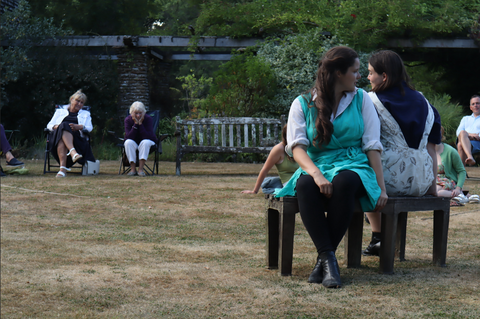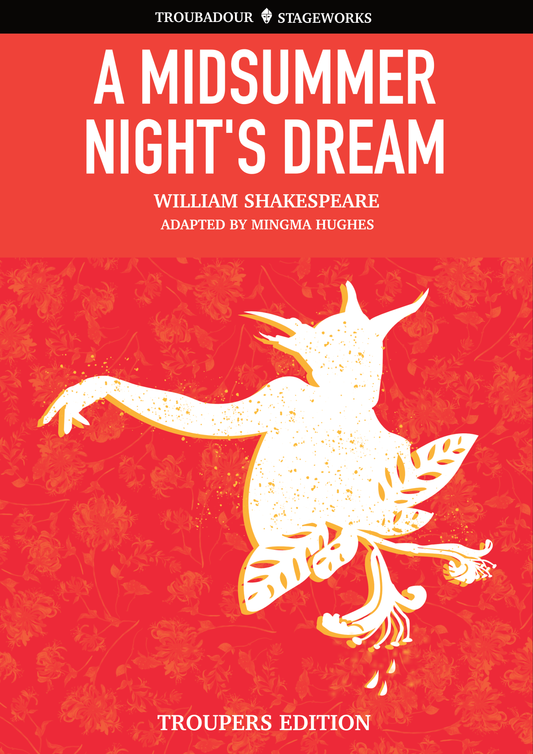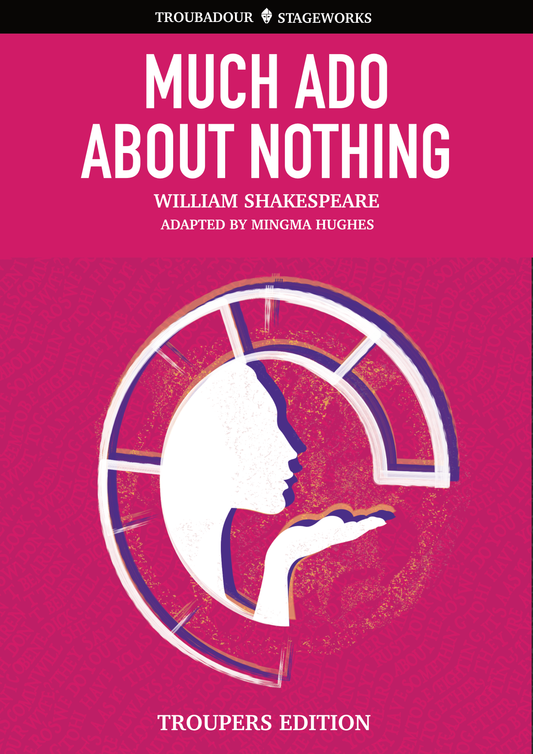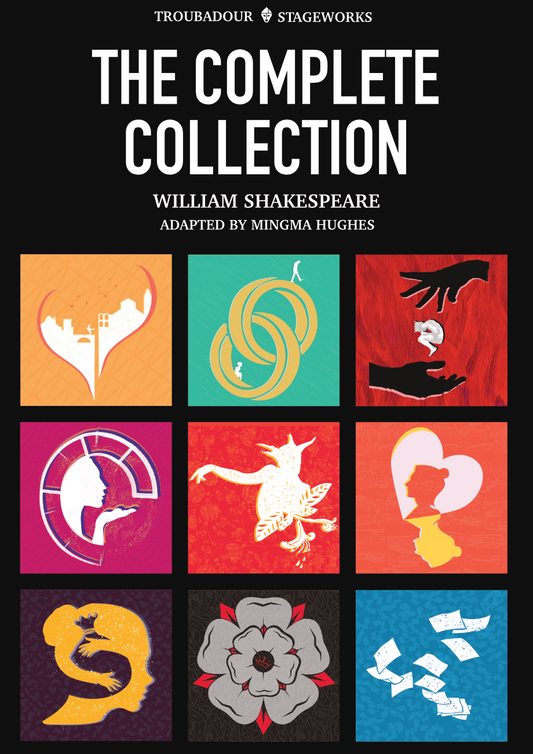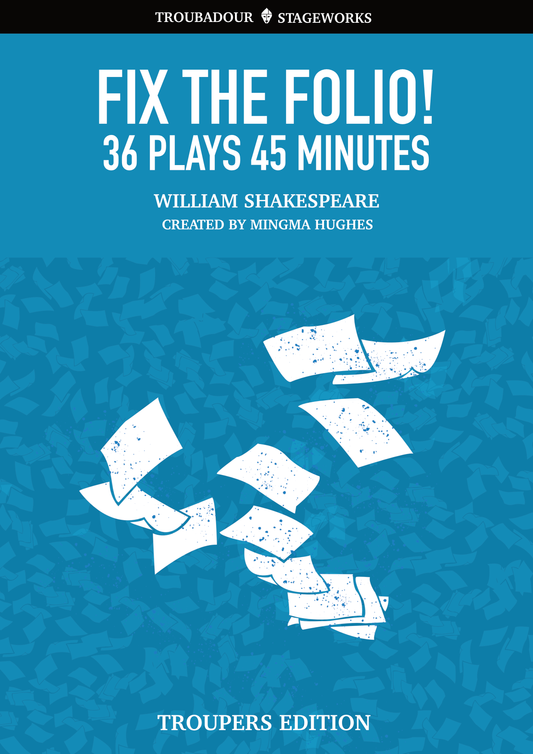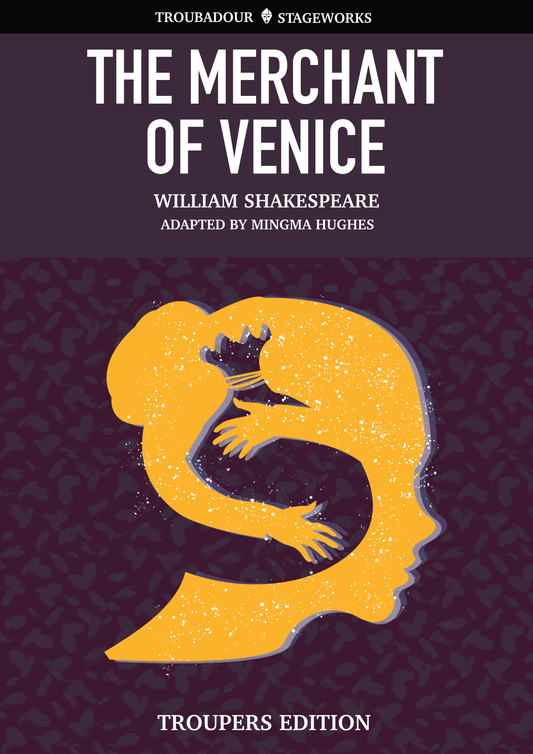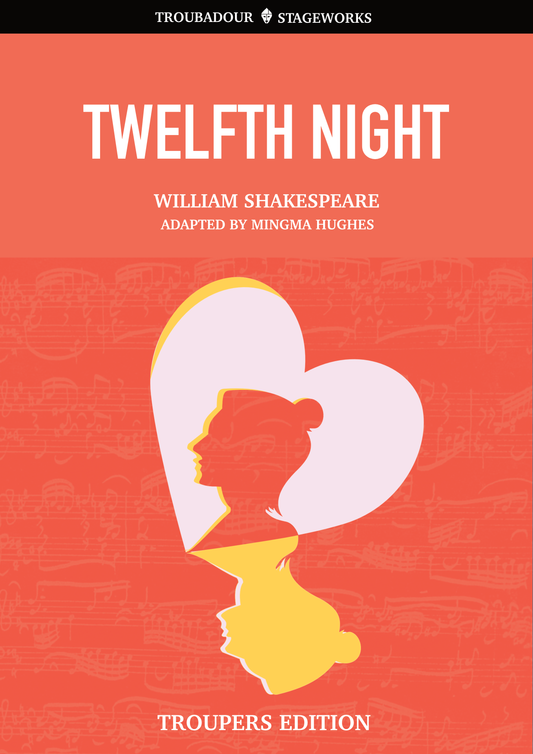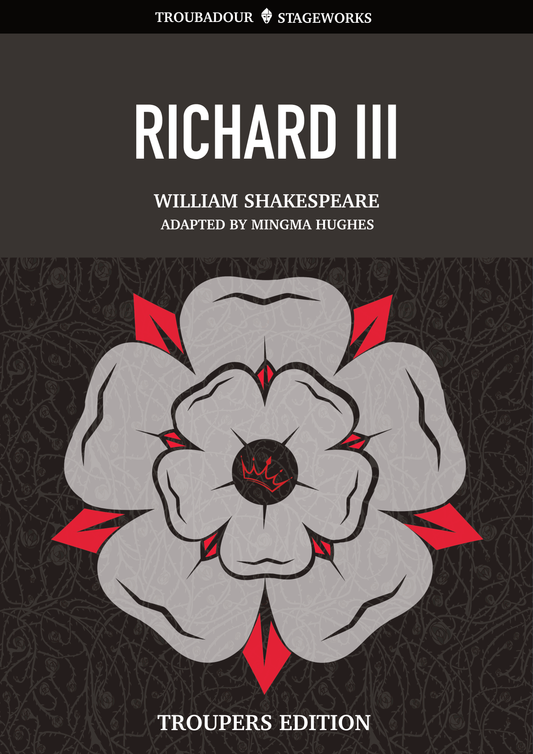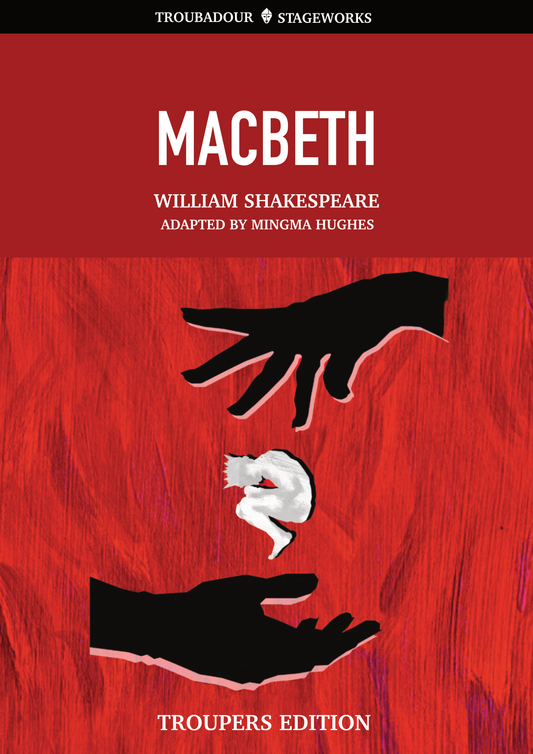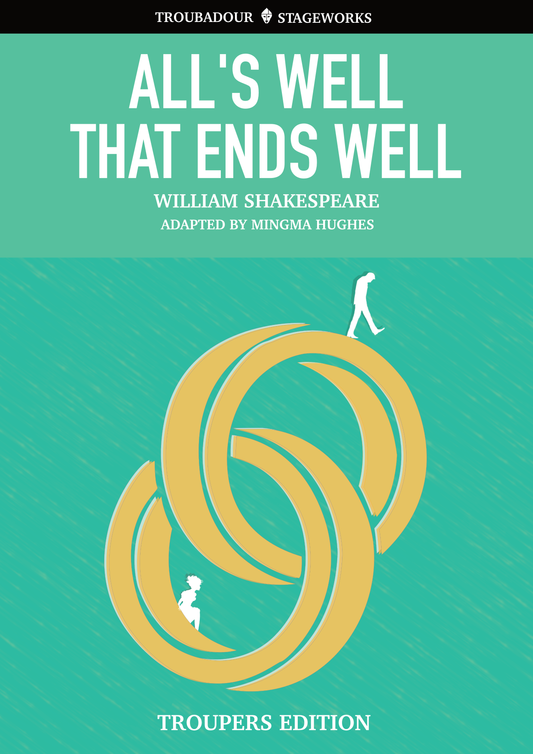Don Pedro returns from the wars to his old friend Leonato’s house. In his retinue are the dashing and promising soldier Claudio, and the infamously sarcastic Benedick. Though veterans of a many a battle, these soldiers are ill prepared for the warfare that awaits them. In the world of wooing, where words are daggers, phrases poison and costume armour will they find their way through to a happy ending?
| Production Credits | |
| Mingma Hughes | Adapter and Composer, Holistic Concept |
| Jasmine Silk | Venue Scout, Producer |
| Emma Rogerson | Director |
| 2022 Tour | |
| James Crellin | Benedick |
| Mingma Hughes | Beatrice / Borachio |
| Devane Boyd | Claudio |
| Jasmine Silk | Hero / Don John |
| Ruth Mestel | Leonato / Dogberry |
| Annie Thorpe | Don Pedro |
“Rumour, compared with whom no other is as swift. She flourishes by speed, and gains strength as she goes: first limited by fear, she soon reaches into the sky, walks on the ground, and hides her head in the clouds.” Aeneid, Book IV
Remembered most for the comedic squabbles of Beatrice and Benedick, Much Ado About Nothing has a darker undertone many adaptations fail to highlight. We open with the return of Don Pedro and his company from war, victorious and ready to woo. But beware ye who take to this field of battle without due care - for though no swords and armour are required for this unexpected war, much harm can be caused through the use of the wrong tools, and the casualty through this negligence of thought - the death of an innocent.
Two battlefields are established: one of household politics, the other of war. These soldiers, though skilled in physical combat, are ill prepared for verbal romantic swordplay. As Benedick laments in Act II Scene III Claudio is far more suited for the ‘drum and the fife’ than the ‘tabour and the pipe’. In a world of conventional war actions must be black and white, and this is Claudio’s method of approach in love: once an attraction is established a contract is agreed, a crucial part of which is the value of said object (Hero).
Strength on one battlefield is a fundamental weakness to the other. The danger of the bastard Don John, so often relegated to pantomime villain hood in many productions, is his ability to navigate both battlefields. To destroy both parties, all he need do is play into this discrepancy.
The very language of Hero and Claudio’s romance is itself sportive and contractual: the wooing, and descriptions, of Hero take place in the flowing meter of verse - the traditional language of love. Tell Claudio the value was not as expected, to him said pre-arranged contract may be guiltlessly voided with full disclosure as to the evidence why.
However, the implications for Hero- heroine of the household world are far more devastating from this destructive behaviour. Leonato is quite correct when he says ‘death is the fairest cover for her shame.’ It is no small threat that, had Claudio not recanted his public statement of Hero’s promiscuity her public life would have been over.
May these worlds never meet? The glimmer of hope is found in the blisteringly combative language of Beatrice and Benedick who, unusually for Shakespearean heroes and unlike the poetry of Claudio and Hero, are primarily prose speakers. Their very language places them outside the fantasy of love, and into a different form of combat as they ‘scratch’, ‘stab’, ‘scorn’, ‘spit’ and woo.
Different to all other communications in the play, there is no doubt both parties are fully aware of their terms of engagement. This comedy was written at a cusping time of old and new- the old methods of contractual marriage, dowry and fealty giving way to the modern match, in line with the new Jacobean puritanism, of older equality. Where the stakes of two battlefields learn to build anew.

